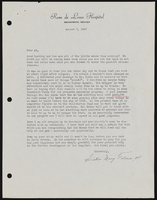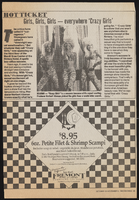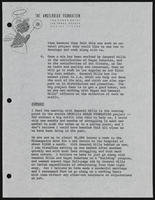Search the Special Collections and Archives Portal
Search Results
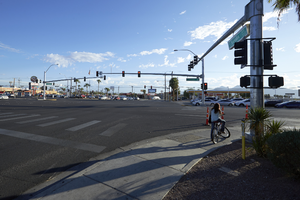
Bicyclist at Boulder Highway and East Sahara Avenue looking northeast, Las Vegas, Nevada: digital photograph
Date
2017-09-14
Archival Collection
Description
A bicyclist waits to cross the Boulder Highway at East Sahara Avenue.
Image

Photograph of Sarah Fried and Anthony Fusco at Freed's Bakery, Las Vegas, Nevada, March 04, 2016
Date
2016-03-04
Archival Collection
Description
Sarah Fried works with her fianc? Anthony Fusco in the kitchen of the popular Freed's Bakery's, 9815 S. Eastern Aveue.
Image
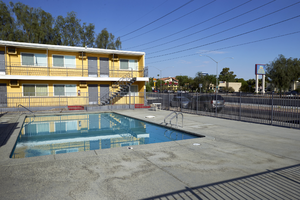
Siegel Suites Sahara apartments pool on Sahara Annex Street looking west, Las Vegas, Nevada: digital photograph
Date
2017-08-31
Archival Collection
Description
The pool at the Siegel Suites Sahara apartments.
Image
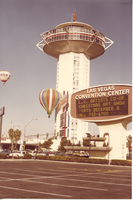
Exterior view of the Las Vegas Convention Center during the Hot Air Balloon Festival: photographic print
Date
1970 (year approximate) to 1980 (year approximate)
Archival Collection
Description
From the Las Vegas: Snapshots of History Photograph Collection (PH-00425)
Image
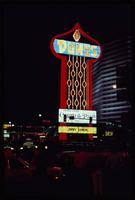
Exterior view of the Dunes Hotel marquee in Las Vegas, Nevada: photographic slide
Date
1964 (year approximate) to 1990 (year approximate)
Archival Collection
Description
From the Las Vegas: Snapshots of History Photograph Collection (PH-00425)
Image
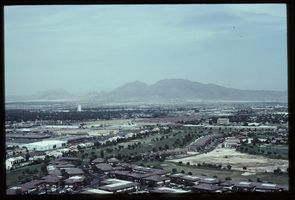
Cityscape of Las Vegas, Nevada: photographic slide
Date
1964 (year approximate) to 1990 (year approximate)
Archival Collection
Description
From the Las Vegas: Snapshots of History Photograph Collection (PH-00425)
Image
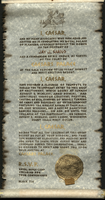
Invitation to the gala preview opening of Caesars Palace, August 5, 1966
Date
1966-08
Archival Collection
Description
Stylized invitation for Jay J. Sarno to the opening festivities for Caesars Palace. The invitation is in the form of a papyrus scroll with charred edges rolled on a golden rod.
Physical Object
Pagination
Refine my results
Content Type
Creator or Contributor
Subject
Archival Collection
Digital Project
Resource Type
Year
Material Type
Place
Language
Records Classification

